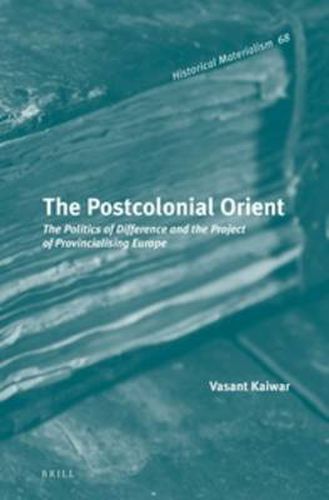Readings Newsletter
Become a Readings Member to make your shopping experience even easier.
Sign in or sign up for free!
You’re not far away from qualifying for FREE standard shipping within Australia
You’ve qualified for FREE standard shipping within Australia
The cart is loading…






In The Postcolonial Orient, Vasant Kaiwar presents a far-reaching analysis of the political, economic, and ideological cross-currents that have shaped and informed postcolonial studies preceding and following the 1989 moment of world history. The valences of the ‘post’ in postcolonialism are unfolded via some key historical-political postcolonial texts showing, inter alia, that they are replete with elements of Romantic Orientalism and the Oriental Renaissance. Kaiwar mobilises a critical body of classical and contemporary Marxism to demonstrate that far richer understandings of ‘Europe’ not to mention ‘colonialism’, ‘modernity’ and ‘difference’ are possible than with a postcolonialism captive to phenomenological-existentialism and post-structuralism, concluding that a narrative so enriched is indispensable for a transformative non-Eurocentric internationalism.
$9.00 standard shipping within Australia
FREE standard shipping within Australia for orders over $100.00
Express & International shipping calculated at checkout
In The Postcolonial Orient, Vasant Kaiwar presents a far-reaching analysis of the political, economic, and ideological cross-currents that have shaped and informed postcolonial studies preceding and following the 1989 moment of world history. The valences of the ‘post’ in postcolonialism are unfolded via some key historical-political postcolonial texts showing, inter alia, that they are replete with elements of Romantic Orientalism and the Oriental Renaissance. Kaiwar mobilises a critical body of classical and contemporary Marxism to demonstrate that far richer understandings of ‘Europe’ not to mention ‘colonialism’, ‘modernity’ and ‘difference’ are possible than with a postcolonialism captive to phenomenological-existentialism and post-structuralism, concluding that a narrative so enriched is indispensable for a transformative non-Eurocentric internationalism.